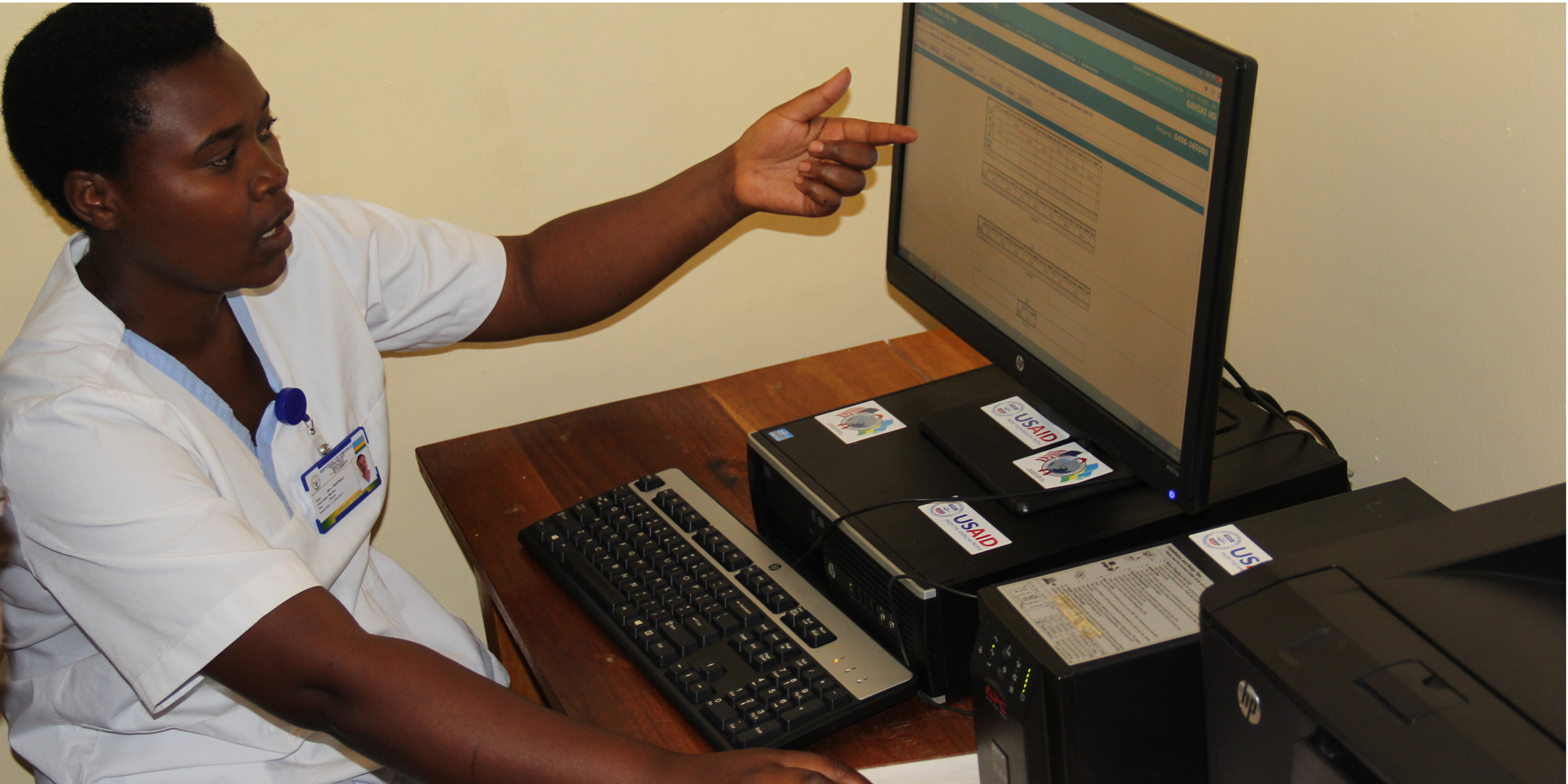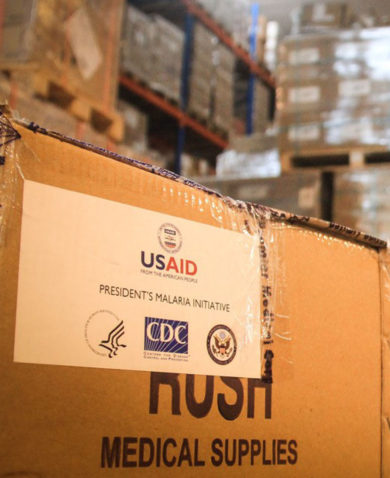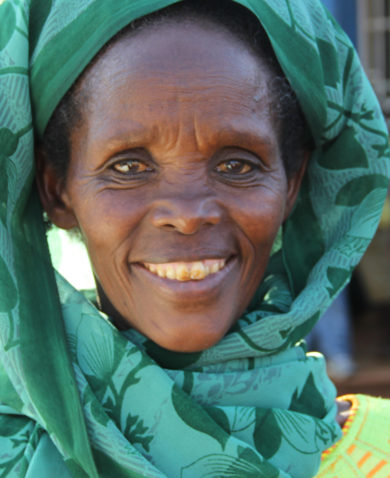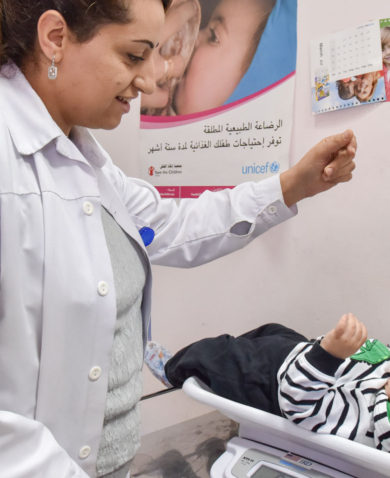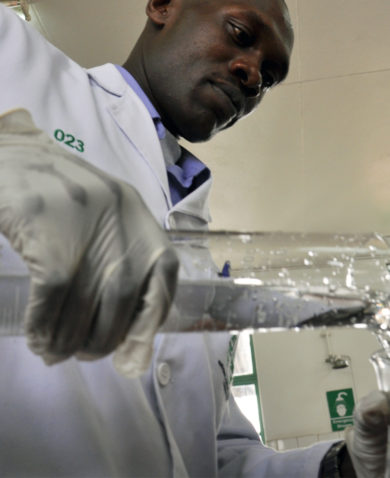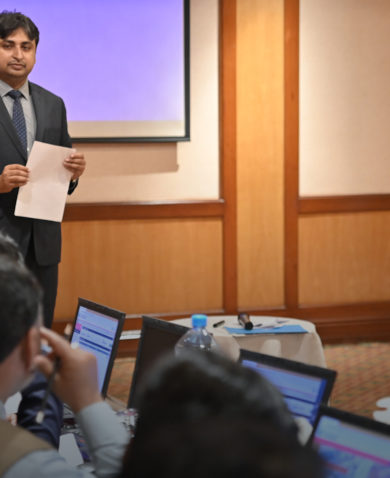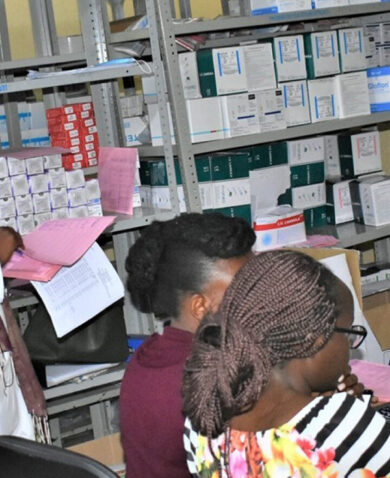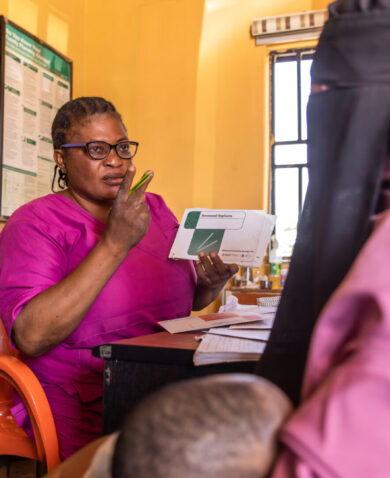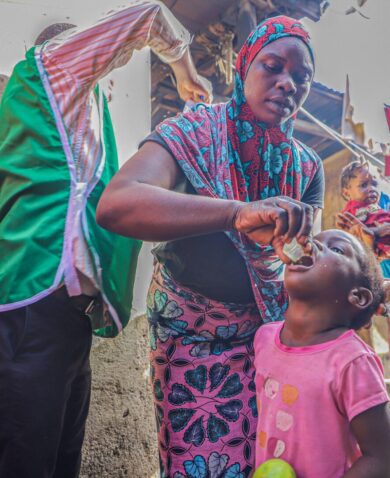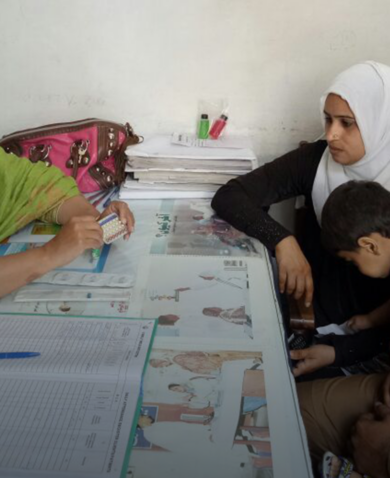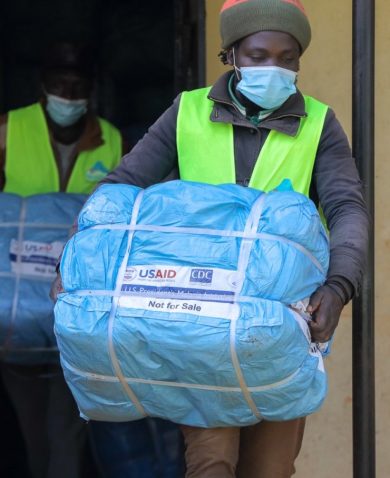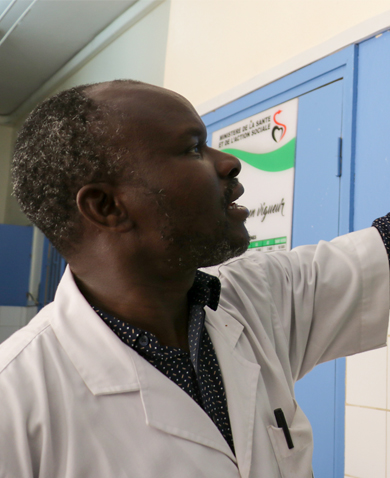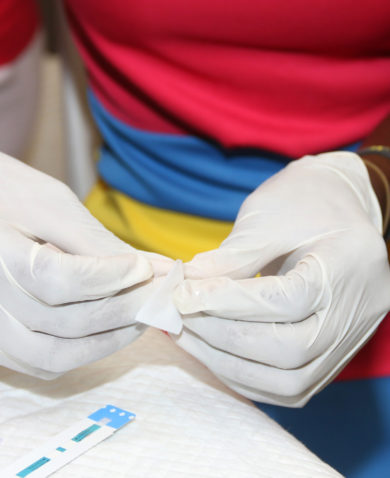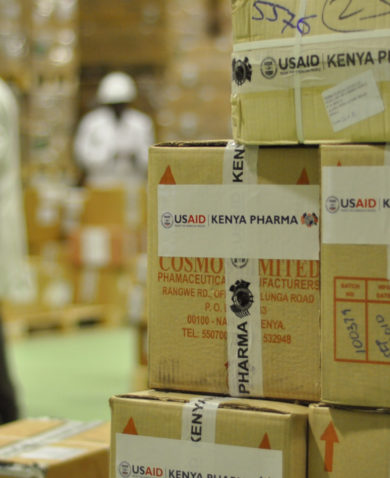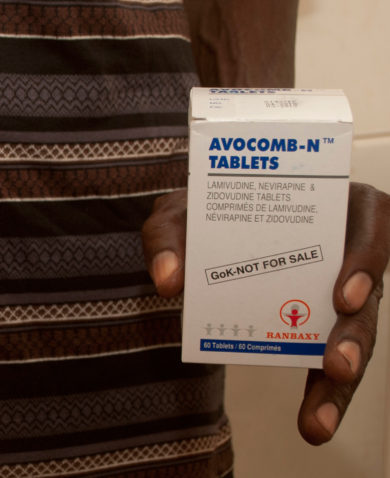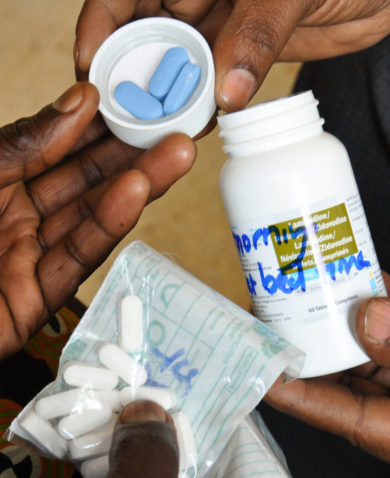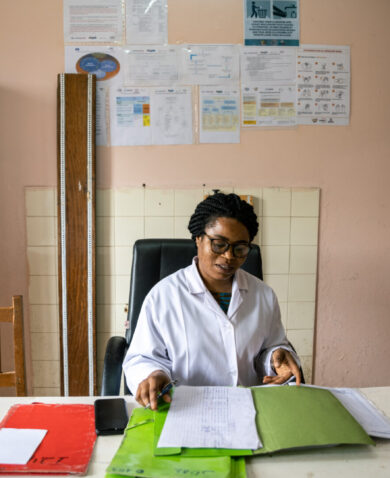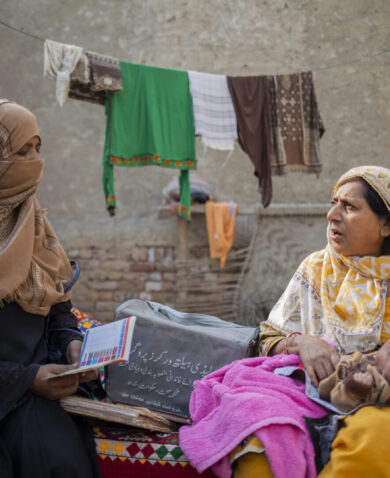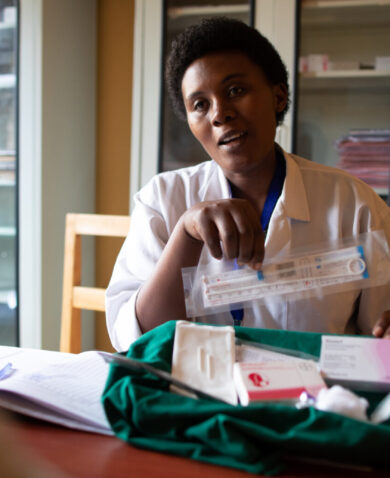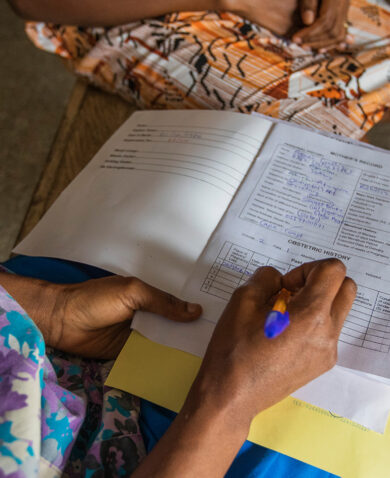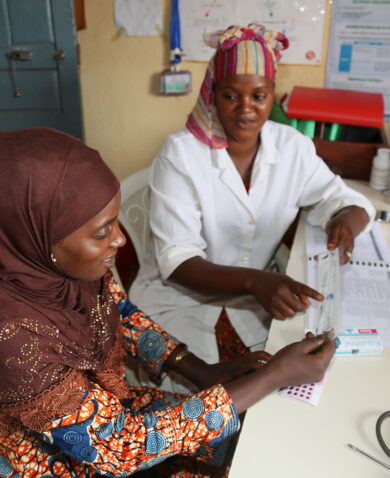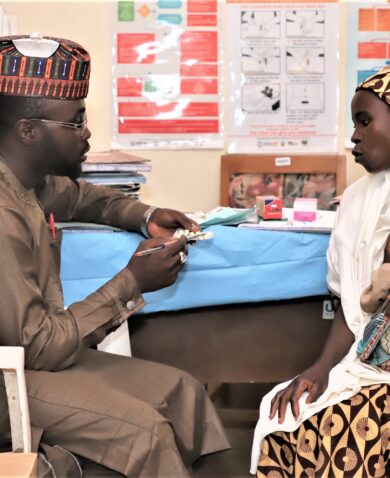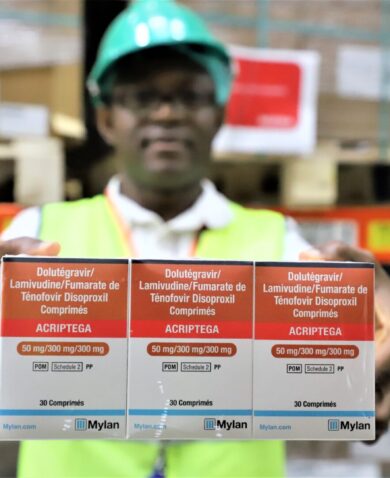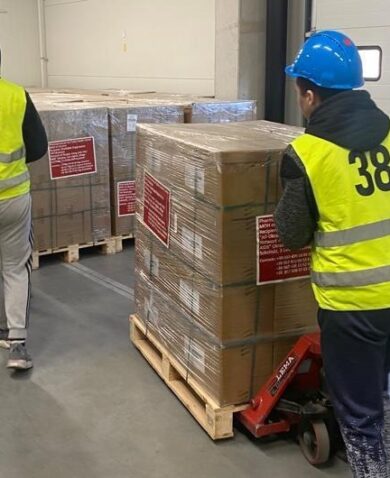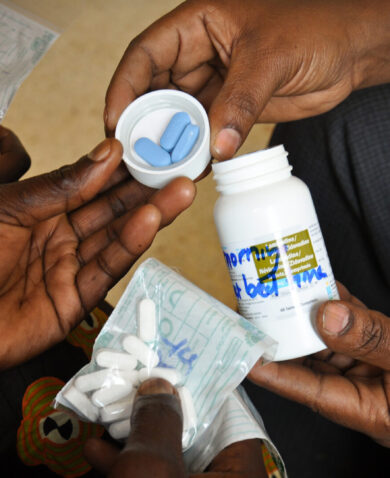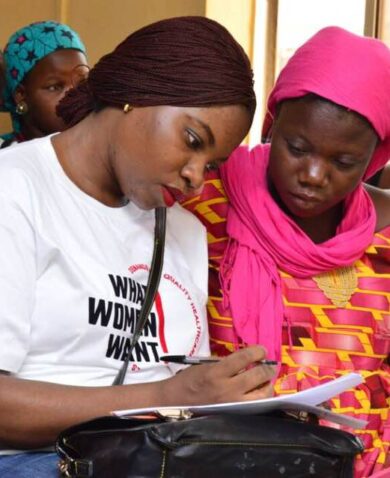OpenMRS allows health care providers to track, follow-up, manage, and better support patients. It also produces comprehensive reports, helping health care facility leadership make evidence-based decisions, and reducing mistakes made because of insufficient information, such as incorrect diagnoses. Aside from Rwanda, OpenMRS is also in use in the United States, South Africa, China, India, and many other countries.
During the past three years, Chemonics, USAID, and the Ministry of Health have greatly expanded the OpenMRS system. First, the program funded the purchase of information technology equipment, including servers, desktops, printers, and hard disk drives. Program staff also helped cable, validate, and test local area networks (LANs), which insured that service delivery points were interconnected over one LAN. Finally, program staff trained OpenMRS users on data entry and data retrieval and taught them how to use the information to make informed decisions to improve patient care and treatment. Another important component of training involved coaching data and information technology managers on the operating system, OpenMRS administration and maintenance, and LAN troubleshooting.

